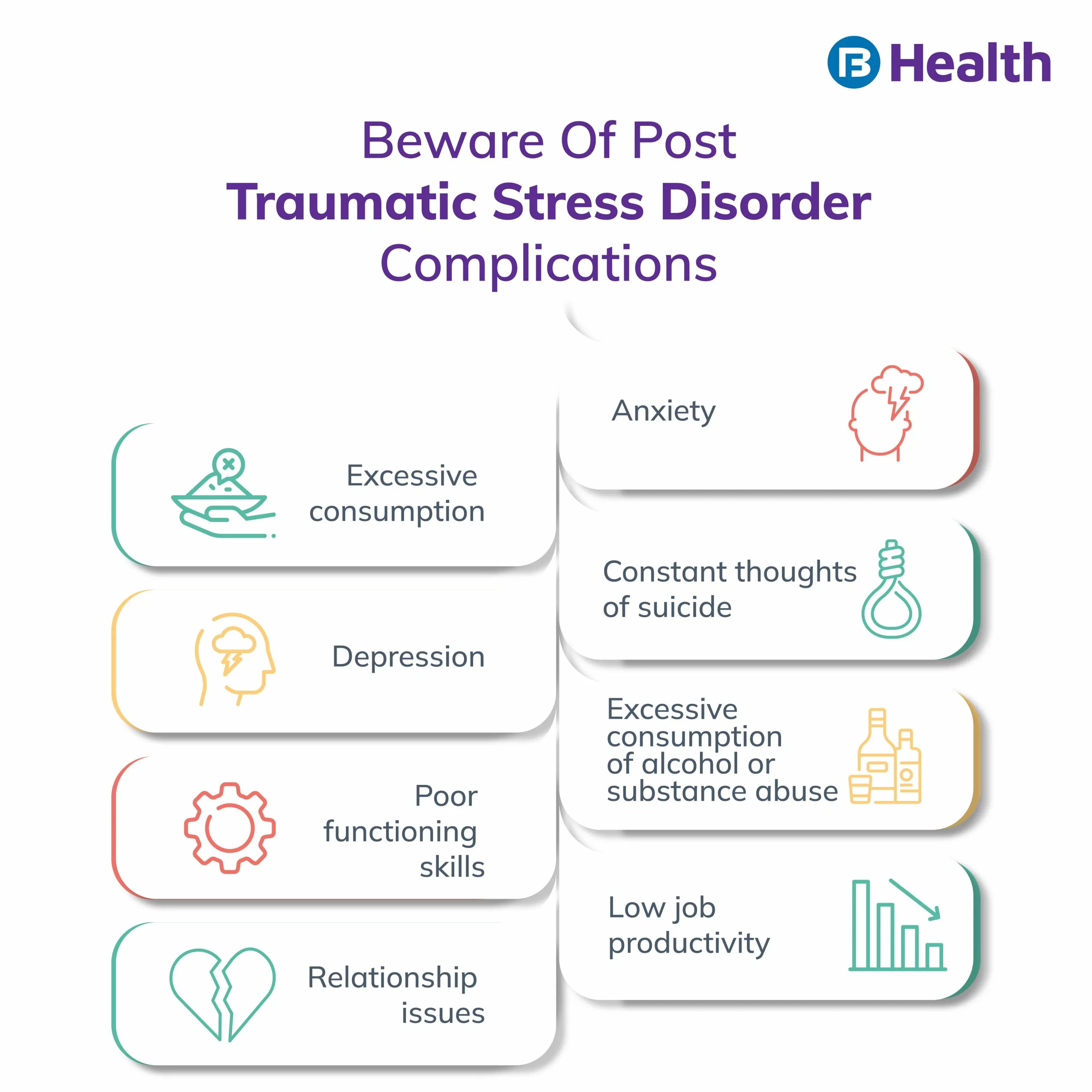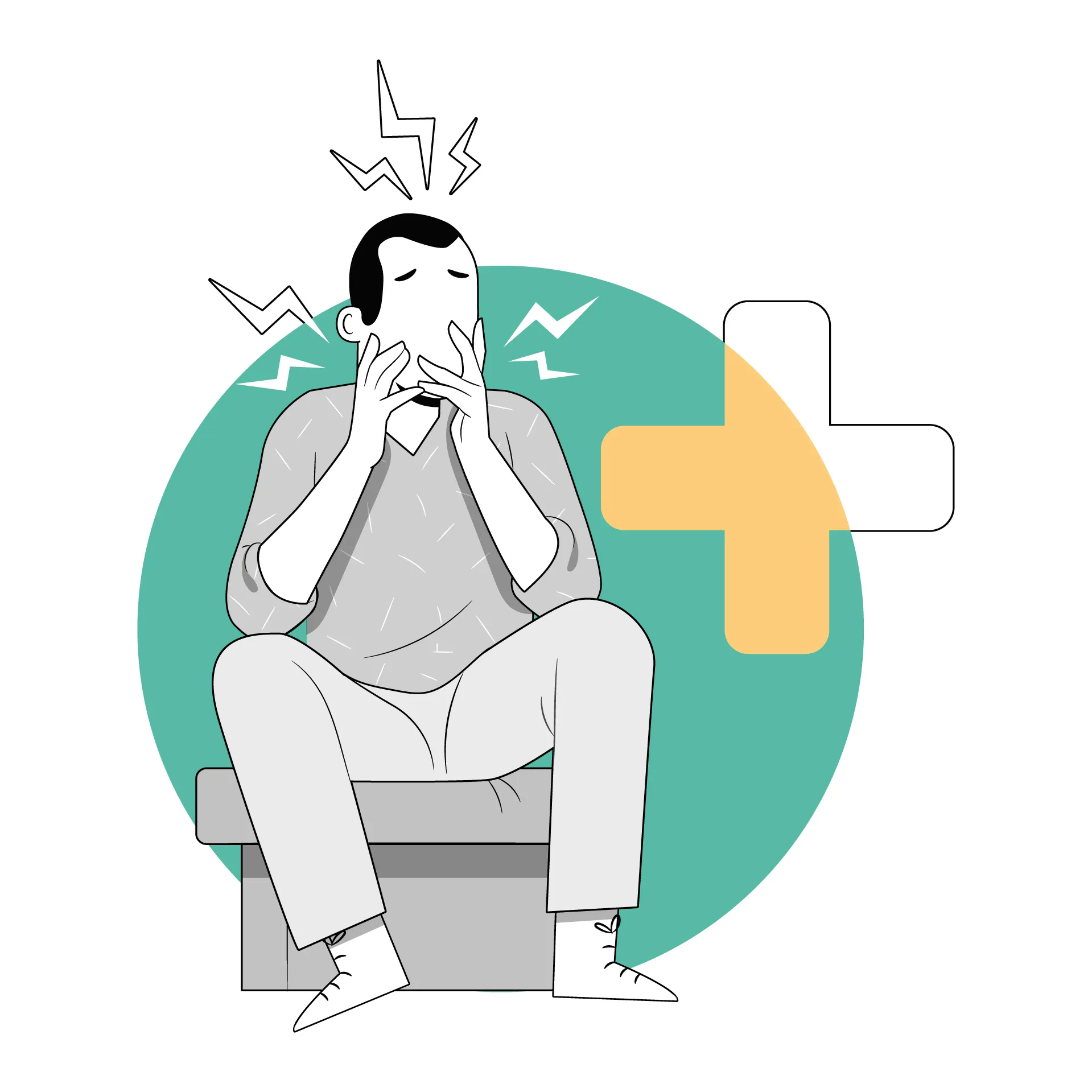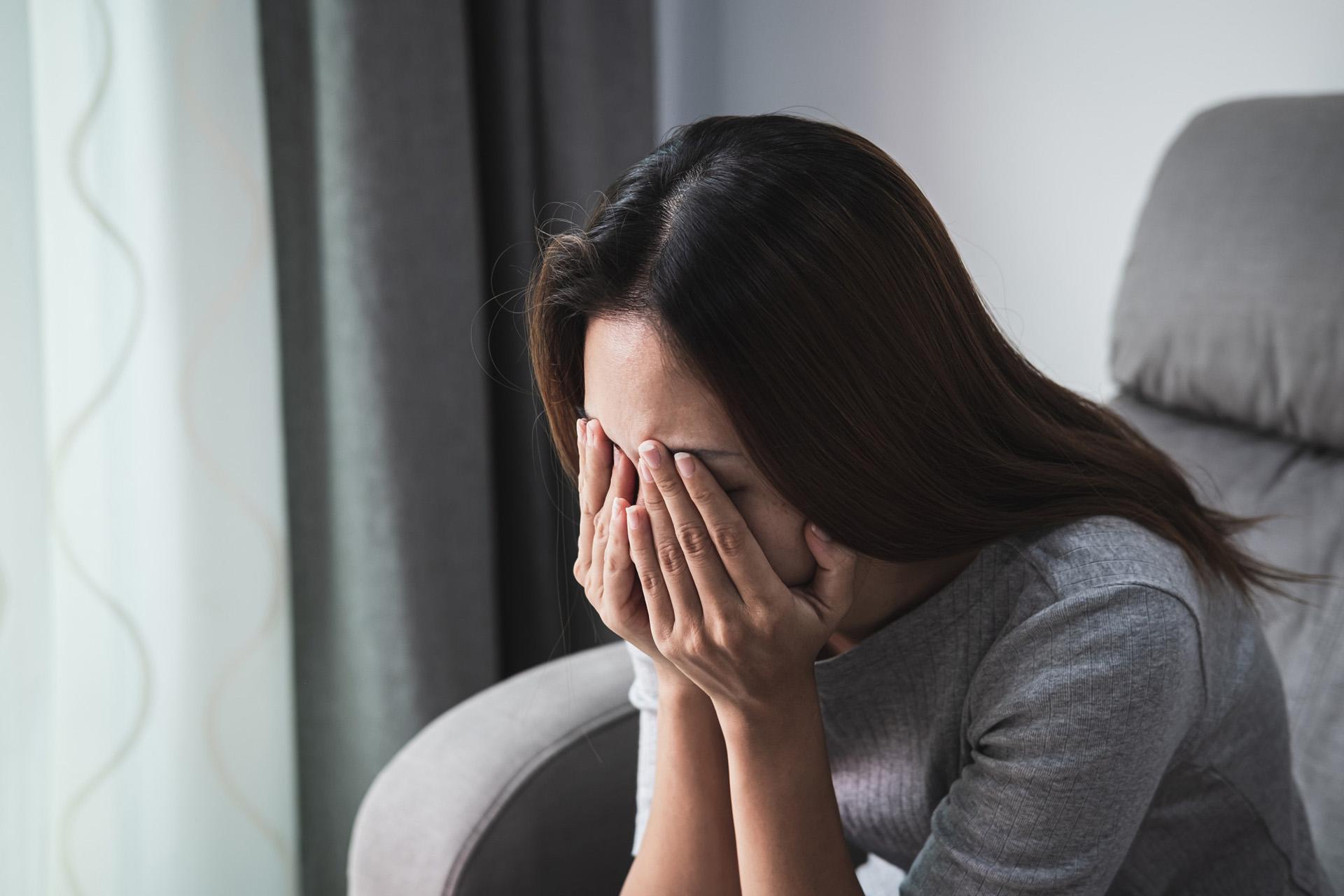Post traumatic Stress Disorder (PTSD) : Symptoms and Treatment
Synopsis
What is the post-traumatic disorder definition? It occurs as a result of any trauma in the past. Beware of post-traumatic stress disorder symptoms like depression or dizziness and get treatment.
Key Takeaways
- Sexual or physical assaults can cause post-traumatic stress disorder
- 28.2% Indians experienced post-traumatic stress disorder during COVID
- Post-traumatic stress disorder symptoms occur after 3 months of the event
Post-traumatic stress disorder is a health condition with physical and mental components that you may experience after you have gone through any unfortunate event. This condition occurs when you have either experienced a horrible incident or witnessed it. As a result of the trauma, you feel helpless and nervous all the time. Your anxiety levels increase, and you may face problems in getting proper sleep. Also called shell shock syndrome, you should not neglect post-traumatic stress disorder symptoms as this can affect your normal life and routine.
The traumatic event could be in the form of a threat or any physical injury. Such physical or emotional scars can affect your mental well-being. A few incidents that may lead to post-traumatic stress disorder include:
- Any kind of assault, which may be sexual or physical
- Death of your loved one
- Accident
- Any natural calamity
- War
Studies reveal that approximately 28.2% of the Indian population showed post-traumatic stress disorder symptoms during the first COVID-19 lockdown. With no human interaction and people being confined to their houses, many experienced increased anxiety and nightmares and felt secluded. The aftermath of the pandemic caused post-traumatic stress disorder in children and teenagers across the globe too.
Approximately 68.9% of children experienced this condition, according to a survey conducted among 412 children [1]. The numbers worsened after the second COVID-19 wave. There was an increase of 7-9% in post-traumatic stress disorder symptoms in areas with a maximum number of COVID-19 cases during the second lockdown. This further emphasizes the importance of emotional wellness during such tough times.
While it is normal to feel traumatized after experiencing or witnessing a terrifying incident, you may recover from it after a brief period. However, if you continue to experience nightmares, sleeplessness, or other issues, you may begin developing post-traumatic stress disorder symptoms. Proper medical attention is vital for the normal functioning of your life.
Read on to get proper insight on post-traumatic stress disorder definition, symptoms, and post-traumatic stress disorder treatment.
Additional read: 5 Effective Relaxation Techniques
Post-traumatic stress disorder symptoms
You may observe PTSD symptoms within a period of 3 months after the traumatic event. The duration of this condition and its severity differs from one individual to the other. While you can recover from post-traumatic stress disorder within a time frame of 6 months, it can be prolonged based on the severity of post-traumatic stress disorder symptoms.
Now that you are familiar with the post-traumatic stress disorder definition, have a clear understanding of its symptoms for timely medical intervention. You can group the post-traumatic stress disorder symptoms into four different categories.
In the type called intrusion, you may get terrible nightmares along with unwanted negative thoughts. You may experience flashbacks repeatedly in which you tend to relive the whole traumatic incident again. In case of reactivity and arousal-type symptoms, you are unable to sleep properly. There may be sudden and severe outbursts that can increase your anxiety and hypersensitivity. In symptoms affecting your cognitive functioning, you may observe the following changes:
- Inability to concentrate
- Poor memory retention
- Disinterest in life
- Depression
- Emotional detachment
If you are experiencing avoidance symptoms, you may be unwilling to discuss the traumatic incident with anyone. In a way, you choose not to remember the person or the situation attached to that incident.
If children experience post-traumatic stress disorder, you may see poor motor or language skills in them. You may see extreme reactions in children as well. A few are:
- Bedwetting regularly despite being toilet trained
- Imagining the traumatic event and enacting the same during playtime
- Clinging on to parents always
- Facing problems in speech
Though post-traumatic stress disorder affects your mental well-being, you can observe the following physical signs too:
- Stomach disorders
- Pain in the chest
- Profuse sweating
- Dizziness
- Body aches
- Weak immune system
- Headaches

Post-traumatic stress disorder risk factors
While the exact reason for this condition remains unknown, the presence of these factors can increase the risk of post-traumatic stress disorder.
- If you have been a victim of abuse when you were a child
- If you are facing additional problems after the traumatic incident
- If you have health issues before or due to the unfortunate event
- If your mental health has not been good in the past
Post-traumatic stress disorder diagnosis
For the diagnosis, it is vital that your symptoms are seen more than a month after the occurrence of the unfortunate event. After a month, if you face any symptoms of post-traumatic stress disorder, your doctor may analyze your medical history and perform a physical examination. Using various tests, your physical symptoms will be checked to find if these are the causes of your post-traumatic stress disorder issues. With the help of assessment tools, your psychologist may understand your condition properly. For you to be diagnosed positive, you need to have [2]:
- A minimum of two cognitive symptoms and at least one symptom from the intrusion category
- At least one avoidance symptom and a minimum of two reactivity and arousal type symptoms
Post-traumatic stress disorder treatment
The main techniques involved in post-traumatic stress disorder treatment include talk therapy, administration of medicines, or a combination of both. A few antidepressants help reduce anxiety and other symptoms of post-traumatic stress disorder. In some cases, even blood pressure medications are provided for reducing sleeping disorders or nightmares. Using talk therapy, your doctor may ask you questions to analyze the nature of your symptoms. With the help of this technique, you become aware of your trigger points. Different types of talk therapies are utilized to understand post-traumatic stress disorder, which includes:
- Psychodynamic type
- Cognitive behavioral method
- Family and group therapy
- Prolonged exposure type
Now that you are familiar with the post-traumatic stress disorder definition, treatment and symptoms, be aware of this condition and take the necessary steps to help your loved ones manage post-traumatic stress disorder. Be it conditions like Alzheimer’s disease or multiple personality disorder; it is always vital to treat mental health conditions without any delay. Reduce stress and anxiety by practicing mindfulness techniques and leading a healthy lifestyle. For any mental health issues, consult renowned health specialists on Bajaj Finserv Health. Book a doctor appointment either through the app or the website and address your mental health symptoms. Remember, good mental health is the key to a happy life and a fit body.
- https://www.frontiersin.org/articles/10.3389/fpsyg.2021.791263/full
- https://medlineplus.gov/posttraumaticstressdisorder.html
Please note that this article is solely meant for informational purposes and Bajaj Finserv Health Limited (“BFHL”) does not shoulder any responsibility of the views/advice/information expressed/given by the writer/reviewer/originator. This article should not be considered as a substitute for any medical advice, diagnosis or treatment. Always consult with your trusted physician/qualified healthcare professional to evaluate your medical condition. The above article has been reviewed by a qualified doctor and BFHL is not responsible for any damages for any information or services provided by any third party.



